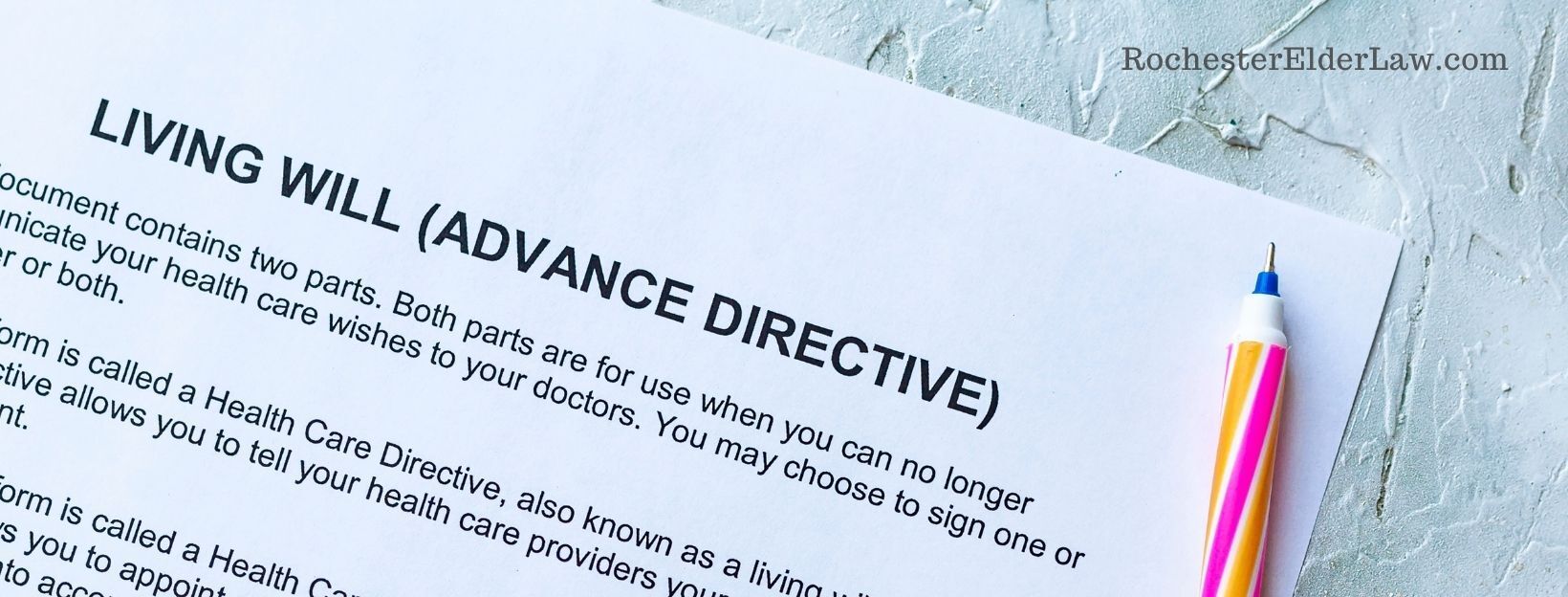
A year after the start of the COVID-19 pandemic and advance care planning and directives are as important as ever. Responses to vaccinations and understanding their efficacy, reinfection potential, and long haul symptoms resulting from COVID-19 continue to baffle our scientific understanding. It appears the coronavirus will continue to challenge Americans, indeed the world, as according to an article in Nature , long haul symptoms may include: respiratory conditions, diseases of the nervous system, mental health burden, metabolic disorders, poor general well-being, cardiovascular conditions, gastrointestinal system burdens, skin disorders, arthralgia and arthritis, and infections. Our world is forever changed, and so too our need for planning.
An advance directive pertains to treatment and preferences and the designation of a surrogate decision-maker should you become unable to make medical decisions on your behalf. These advance directives fall into three categories: health care proxy, power of attorney, and living will.
A health care proxy designates an individual to make health care decisions if the other person is medically incapacitated and cannot make their wishes known. This proxy affords the same rights to request or refuse medical treatment as if the individual at risk were capable of making and communicating decisions.
A living will specifies the types of medical treatment desired in the case of incapacitation addressing information regarding the following situations: pain relief (analgesia), antibiotics, intravenous hydration, artificial feeding such as a feeding tube, cardiopulmonary resuscitation, ventilators, and do not resuscitate orders (DNR).
Medical advance directives now include specific passages addressing COVID-19 and your desired course of medical treatment. Some advance directives provide express authorization for surrogates or agents to communicate with providers remotely. The directive includes all forms of digital communication such as web conference, telephone, FaceTime, email, etc., and expressly permits medical providers to accept written instruction.
Your advance medical directive can express end-of-life wishes that address the use or withdrawal of specific treatments, particularly intubation, as COVID-19 patients needing a ventilator have poor survival rates. In dire health situations that require intubation, caregivers want and need legal, medical access to advocate for their loved ones, even if they cannot be present due to visitor restrictions or live remotely.
A previously well-drafted advance directive needs small adjustments to accommodate issues of COVID-19; however, it is prudent to revisit an existing document. Be certain to address remote communication authorizations in your directive. If you do not have an advance medical directive, be aware that there are many future unknown health consequences due to COVID-19, its long-haul symptoms, and future vaccination issues that should prompt you to create a directive.
An AARP article describes how these documents are created, whether it is the first time or updating an existing directive. Of course, there is no way to address every possible health condition scenario, but where you can, be explicit about your instructions, best course of actions and empower your health care agent to understand your decision-making process.
We can help by reviewing an existing advance directive, or by drafting new ones for you. Contact us today. We will listen to your wishes and help guide you in making important decisions about your care, where it will be provided and who will assist you if needed.
more news you can use



Still have questions?
Tell us about your situation.

Centrally Located in Brighton
near Cobbs Hill:
1399 Monroe Avenue,
Rochester, NY 14618
Map & Directions
Weekly News & Updates
Subscribe now and get our FREE Guide, "The Top Eight Mistakes People Make with Medicaid Qualification"
Rochester Elder Law
All Rights Reserved
Legal Disclaimer: The information on this website is for general purposes only and is not legal advice. Content may change without notice. Please consult an attorney for guidance on your specific situation. Contacting us does not establish an attorney-client relationship. Do not send confidential information until a formal attorney-client relationship is established. This site may contain attorney advertising. Prior results do not guarantee similar outcomes. By using this site, you agree to this disclaimer.







